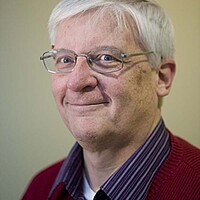'Disgraced': Daring play spotlights the unease of faith and politics
Loading...
The most produced play in the United States right now doesn’t send audiences away humming a happy tune. Instead, they’re left trying to catch their breath and come to grips with what they’ve just witnessed.
The lead character in the 2013 Pulitzer Prize-winning drama “Disgraced,” a successful Muslim American New York lawyer named Amir, spends the play’s 90 taut minutes slowly dissolving before the audience’s eyes, his repressed feelings about his childhood religion and culture surfacing to torment him and everyone around him.
In the 2015-16 season, “Disgraced” is being performed on 18 stages around the United States, making it the year’s most popular play, according to a survey of regional theaters by American Theatre magazine. (Perennial productions such as Shakespeare and holiday specials such as “A Christmas Carol” were not counted.) An HBO film version is also in the works.
Why is the play so popular? An obvious answer is that it has become even more topical as fears and suspicions about Muslims rise and politicians call for a halt to their immigration into the US.
Early in the play audiences learn that wealthy and successful Amir has rejected Islam and now ridicules its teachings. He’s worldly and affable. He’s changed his last name and told colleagues at his firm that he’s from India, not Pakistan. But his fragile fraud finally implodes.
“The trick of producing this play effectively is to make the audience fall in love with Amir, then have him terrify them in the final scene,” Ayad Akhtar, the author of “Disgraced,” recently told the Seattle Times.
“The play does very artfully push buttons,” says Rajesh Bose, who is appearing as Amir in a production of “Disgraced” at the Huntington Theatre Company in Boston through Feb. 7. “Nobody leaves the play indifferent…. Everybody has something they want to [say] about it.”
Amir’s journey is complex, open to many interpretations and points of view. “It’s such a great role,” Mr. Bose says. “It’s like playing Richard III or Othello or Hamlet or something like that.”
How the play is experienced depends in part on the viewpoint each audience member brings into the theater. “When the meaning of the art lies in the audience, then meaning is highly individual and will depend on factors beyond the author’s control such as the age, ethnicity, religion, and political leanings of the audience member,” says Lisa Timmel, the Huntington’s director of new work.
In a fit of rage near the end of the play, Amir surprises himself as much as his non-Muslim wife and dinner guests when he blurts out that he is proud of the 9/11 attack. At that instant the audience “stops breathing for a second,” Bose says. “All the actors on stage feel that…. We all feel the energy of what the play is doing.”
Some of his friends in the Muslim community, Bose says, have questioned whether Amir will be unfairly taken as representative of Muslims as a whole.
Amir “spits on a Jew. Twice,” Bose says, and late in the play commits a shocking and violent act. Why is this the only representation of a Muslim man we’re seeing on stage, his Muslim friends ask. “The conundrum is that this becomes ‘the’ story, not ‘a’ story among many” about Muslim Americans, he says. He hopes that “Disgraced” will inspire other works about the Muslim experience in America.
Still, “Disgraced” is serving an important role, Bose says. “What heartens me about this play is that it always leads to dialogue,” he says. “People might have an initial take but then the more they talk about it, it leads to something else. There are no pat answers to anything.
“The play doesn’t answer any questions. It just asks them.”








